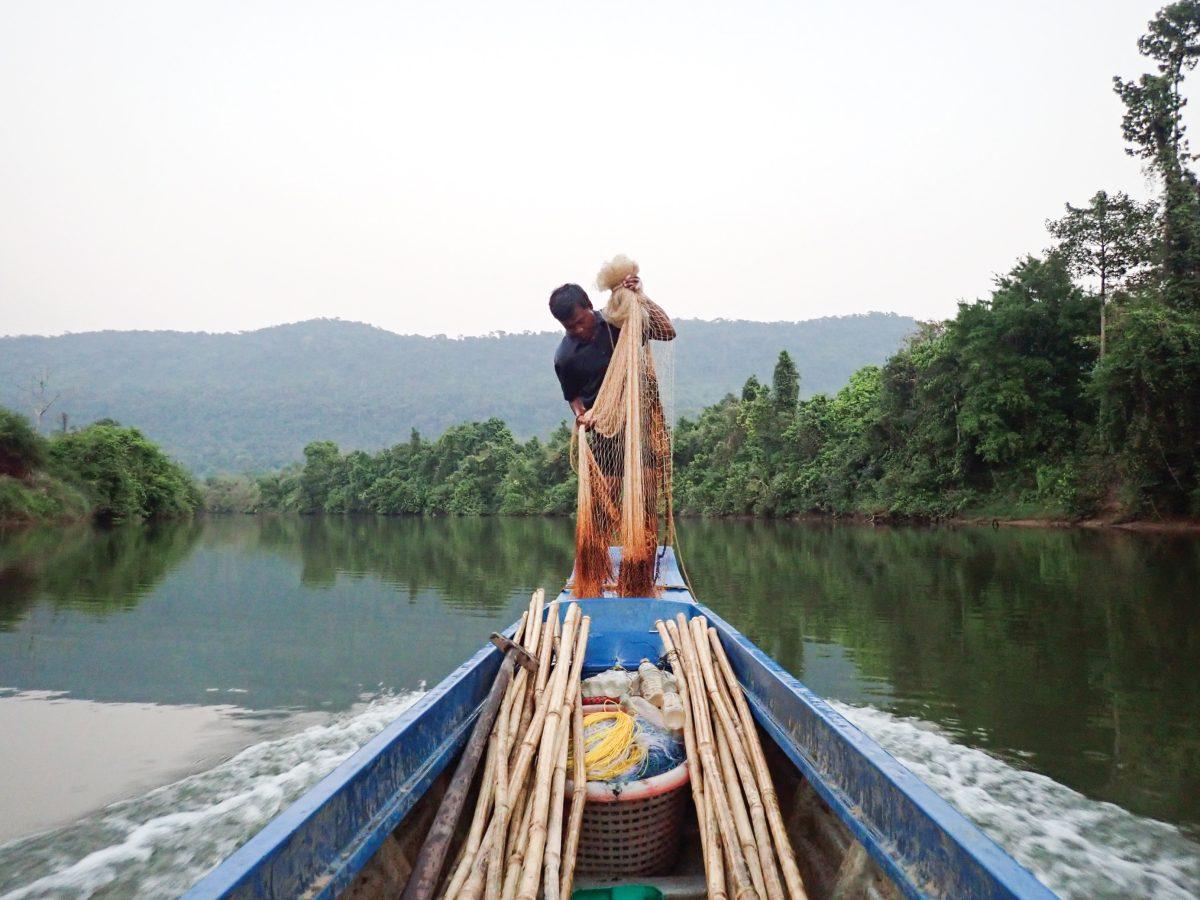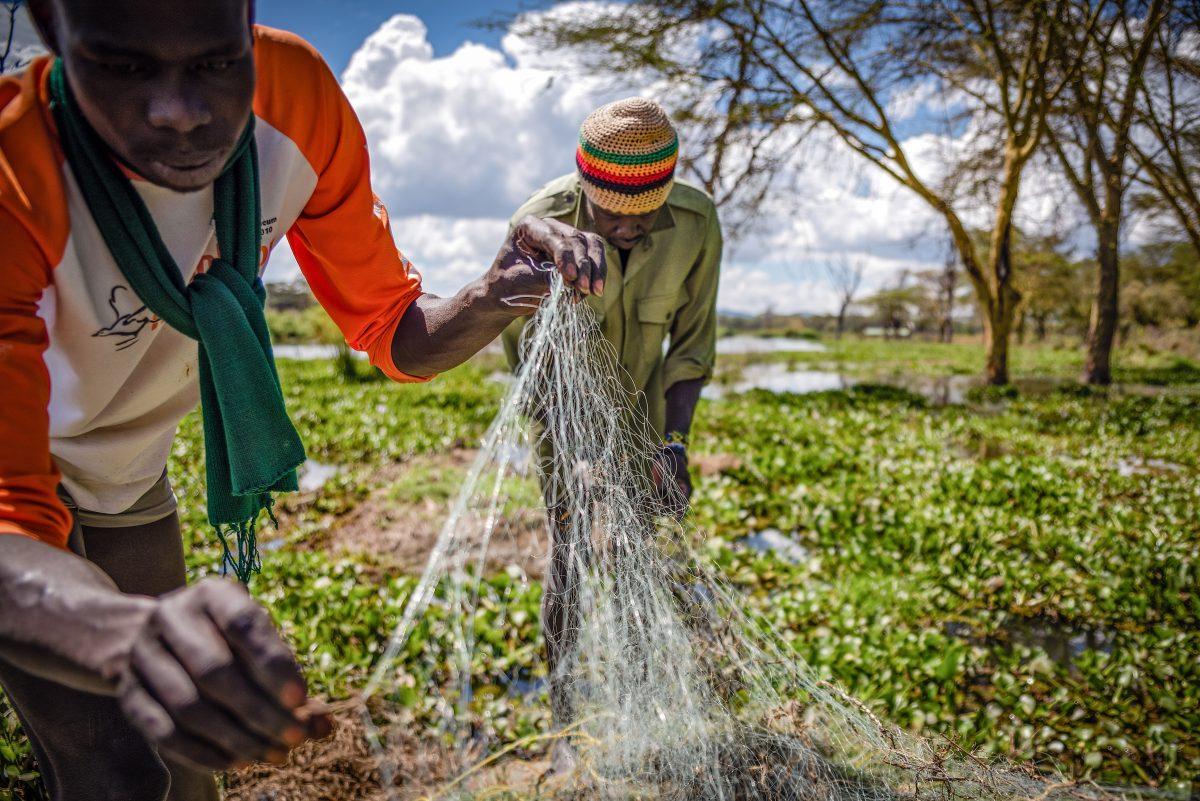Mississippi State University’s Feed the Future Innovation Lab for Fish received its second $15 million grant from the U.S. Agency for International Development (USAID). The grant will be used to fund projects that promote sustainable aquaculture and fish harvesting practices in developing countries in Asia and Africa.
The Feed the Future Innovation Lab for Fish has been working since 2018 to fight food insecurity and to provide job opportunities in the fields of aquaculture and fisheries for people living in developing nations. The lab is an interdisciplinary team of MSU faculty and staff that partners with universities and organizations around the globe to inform people on how to get the most nutritional value out of fish while keeping local ecosystems in balance.
Fish Innovation Lab Director Mark Lawrence said that fish are a major part of life for many families living in developing countries. Fish can be a valuable food source, especially for children. Fish are high in protein, lipids, vitamins and minerals. In countries where malnutrition is an issue, fish provide critical nutrients.
The Fish Innovation Lab received a five-year, $15 million grant from USAID in 2018 to start several projects in Africa and Asia. This September, the lab received another five-year, $15 million grant to continue existing projects and to begin new ones.
Lawrence said the new grant is more than just a continuation of the Fish Innovation Lab’s current projects.
“Although it’s an extension of the program we’ve already been doing, it really is a fresh start because we’re starting brand new, we’re gonna be launching new projects,” Lawrence said.
MSU Vice President for Research and Economic Development Julie Jordan said that the grant renewal is a testament to the Fish Innovation Lab’s positive impact on the world. The United Nations Food and Agriculture Organization recognized the lab as a global Reference Center on Antimicrobial Resistance and Aquaculture Biosecurity.
Lawrence said the Fish Innovation Lab determined its projects for the last five years through a “competitive grant process.” Researchers with projects that addressed a specific need in the international community could apply to be funded by the lab. 13 projects were selected in the lab’s first phase. Lawrence said the same process will be used for the next round of funding.
Lawrence described one project headed by a Fish Innovation Lab team that worked with fishing villages in Kenya. Oftentimes, the fishers in these villages would sell the fish they caught and use the money to buy cheaper but less nutritious food to feed their families. The lab team ran a social campaign to encourage these fishers to feed their families more of the fish they caught. After two years, the village experienced a decrease in childhood malnutrition.
Another project was in Cambodia. MSU assistant professor in aquatic ecology Sandra Correa and other MSU faculty worked with communities along the Sre Ambel River in Cambodia to help locals better manage the river’s fisheries.
Correa said the project involved creating a “citizen science program” that paid local fishers to collect data on how far from their village they traveled to go fishing, what fish they caught and their size. The Fish Innovation Lab team partnered with conservationists in Cambodia to train the fishers on how to properly gather the data. Data was collected using a camera equipped with GPS and was stored in a smartphone app.
Another aspect of the project provided training and resources to help prevent food waste. Correa said that the lack of refrigeration in developing countries creates a lot of food waste. The Fish Innovation Lab team taught locals how to preserve fish for longer and supplied smokers to cook fish as well as a vinaigrette that prevents bacteria growth.
Correa is hopeful the grant renewal will provide the necessary funding for new technology that will make data collection more efficient, as well as the creation of an aquaculture facility to produce juvenile fish that will be introduced into the river to replenish existing fish populations.
Correa traveled to Cambodia in the summer of 2022 to visit the villages that the Fish Innovation Lab team is working with. Correa was very excited to see how well the locals had adopted the methods and technology they had been given.
“We were witnessing how they were processing the fish, collecting the data, so on and so forth, and it was amazing,” Correa said.
Director Lawrence said that the Fish Innovation Lab fosters global connections. A fish farmer in Mississippi learned about equipment that a feed mill engineer from Bangladesh was using for fish production. The lab connected them, and now the farmer is using what he learned at his fish farm in Mississippi.
“We’re just sort of building expertise. The university’s building these connections so that what we’re doing has long-term impact, and you’re really, you’re not just doing a short-term project, you’re building something that will build and sustain,” Lawrence said.
For more information about the Feed the Future Innovation Lab for Fish, visit www.fishinnovationlab.msstate.edu.
An MSU Fish Innovation Lab project worked to reduce childhood malnutrition in Kenya.







